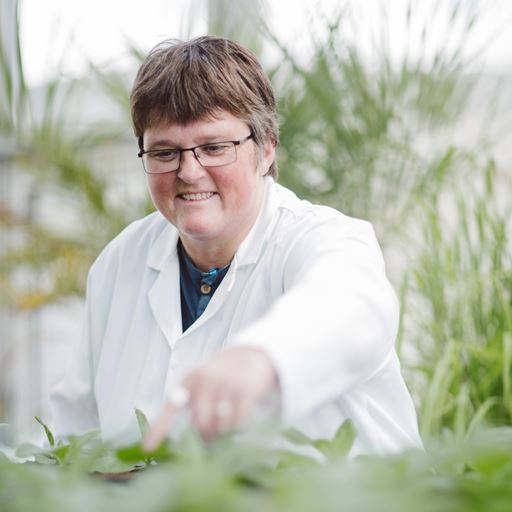The project – Transforming India's Green Revolution by Research and Empowerment for Sustainable food Supplies (TIGR2ESS) – is a Global Challenges Research Fund initiative to support cutting-edge research and innovation addressing the global issues faced by developing countries.
Working with colleagues at Cambridge University, the Essex team will focus on identifying millet and sorghum crops that use water more efficiently without compromising productivity.
For plants to grow they must photosynthesize, which requires CO2 from the atmosphere. In order for CO2 to enter the plant, small pores (known as stomata) on the leaves must open to allow CO2 in. However, as a consequence of being open, water is lost through these pores at a faster rate than CO2 is taken up. Some crop varieties open and close these pores more rapidly in response to changing conditions, and therefore lose less water, and some may show increased rates of photosynthesis for the same rate of water loss.
Plant photosynthesis is the process that enables plants to harvest energy from the sun and convert it to products for food and fuel and Essex has had an international reputation for innovation and excellence in photosynthetic research for more than 30 years.
This project, which also involves the International Crops Research Institute for the Semi-Arid Tropics in India, will be the first in Essex to focus on water use efficiency and photosynthetic capacity in pearl millet and sorghum – two key cereal crops in India.
The Essex team, led by Professor Tracy Lawson, working with Dr Silvere Vialet-Chabrand, from the School of Life Sciences (formerly the School of Biological Sciences), will develop new tools to look at changes in soil water availability and transport in these crops and how this links to the crop’s photosynthesis efficiency.
“Crops in general are under a tremendous amount of stress including in India as they have to cope with extreme spells of rain, high temperatures and drought and climate change is going to make conditions even more challenging,” explained Professor Lawson. “Water is critical to plants and the unpredictability of a water supply is one of the main drivers to negatively affect plant yield.”
As well as going to work with colleagues in India, the Essex team will work in the laboratories on campus to reduce water availability and see how plants can be manipulated so less water will not affect crop yield.

.jpg?mh=500&mw=500&hash=6568B6C9CCF5290A596BEF6678B6AD0E)




